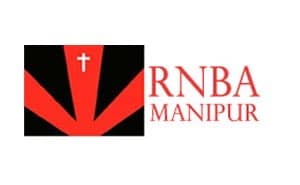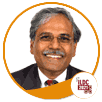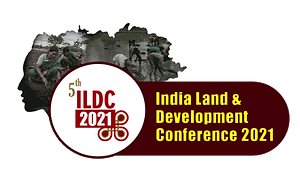Agenda in ILDC
[ivory-search id=”7239″ title=”Session Search”]
24 Nov 2021
Session Organizer:  | |
 Video Link Video Link |
|
|
|
|
|
|
|
| |
With rising urban population and its tailing,bleak consequences,discussions that ideate on efficient,inclusive and sustainable urban land governance systems is imperative.There is a need to identify a nexus between various ideas of ‘urban development’ and the Sustainable Development Goals.
India Land and Development Conference 2021 in collaboration with CitySpeaks, through its Youth and Land Track, advocate for land security for peace and resilience .Realising the importance of youth representation and participation in the arena of urban land governance, we are organising a panel discussion on the theme- “How can youth mitigate the issues of urban land governance?”.
The discussion brings in young professionals working on land governance ,so as to enable a platform which is accomodative of diverse perspectives regarding the challenges faced by youth in the development space.Packed with a rich discussion in urban land governance and development followed by interactive sessions for participants, the discussion will lay down strategies for more youth engagement in sustainable development and land governance.
| Session Organizer: | |
 Video Link Video Link |
|
|
|
|
|
|  Shipra Deo Shipra DeoDirector- Women’s Land Rights, Landesa |
 Video Link Video Link | |
 Taruna Jakhar Taruna JakharAssistant Professor, Institute of Law, Nirma University |  Neema Pathak Broome Neema Pathak BroomeCoordinator Conservation and Livelihoods Programme at Kalpavriksh Environment Action Group |
 Soma K Parthsarathy Soma K ParthsarathyPolicy analyst, Researcher & Advisor, Gender, Sustainable Development and Livelihoods |  Chockalingam S Chockalingam SDirector General, Yashwantrao Chavan Academy of Development Administration (YASHADA) |
 Moderator: Moderator:Varsha Ganguly Professor, Nirma University | |
This roundtable aims at expanding the discourse on DEVELOPMENT and LAND, and attempts to understand DEVELOPMENT from the lenses of LAND, elaborating the shifts in development paradigm and changes in meanings of LAND.
The presentations cover different meanings of LAND representing concerns of different stakeholder’s, i.e., the State, indigenous people, women, and land consumers – holders and dependents. Different types of LAND and its uses are covered in the session to show varied meanings and changes in the meaning of LAND over the time, with shifts in DEVELOPMENT paradigms.
The first presentation focuses on ‘land as a property’. This presentation covers how Indian Constitution has conceived LAND, and presenting how land’s codification through Constitutional amendments, laws, and judicial verdicts have contributed to
changes in meaning of land as a property. Based on these expressions and interpretations, the presentation will showcase zigzag changes in the meaning of the LAND.
The second presentation covers ‘land and biodiversity based rights to land/natural resources’, worldview of indigenous people and how land is part of their lifestyle, critique of Indian government’s conservation policies, and raising questions about decision-making on land and water.
Third presenter will critically look at land-use planning and land governance. He will take a stock of land records and ground realities by referring to maps and records and identifying gaps in ownership, possession, boundaries and area, and nature’s imprints. Further, the presenter will explain about land-use planning, which is based on maps and records that do not provide required details except planning related to afforestation, and how they become reasons for not considering preservation of Rivers, Streams, etc. in the land-use planning and land governance.
Fourth presentation will keep how women conceive and construe land at the centre. While focusing on livelihood concerns of women, the presenter will refer to forest and common/public lands, and based on work experience/research, she will share changes/differences in meaning of land that are observed between two generations.
Session Organizer: | |
 Video Link Video Link | |
 Moderator: Moderator:Nagesh Kumar Director, Institute for Studies in Industrial Development |  Aradhna Agarwal Aradhna AgarwalProfessor, Department of International Economics, Government and Business, Copenhagen Business School, Denmark |
 Srikanth Badiga Srikanth BadigaVice President, Export Promotion Council of Export-Oriented Units and SEZs (EPCES) and Director, Phoenix Group |  Bipin Menon Bipin MenonDevelopment Commissioner, NOIDA SEZ |
 Malini Tantri Malini TantriAssistant Professor, Institute for Social and Economic Change |  Ramaa Arun Kumar Ramaa Arun KumarAssistant Professor, Institute for Studies in Industrial Development (ISID) |
The Special Economic Zones (SEZs) are policy-led industrial agglomerations that have been established in different countries around the world. SEZs have contributed significantly to industrial and economic development in many countries by helping to attract export-oriented investments from global and domestic investors. The UNCTAD’s World Investment Report (2019) has documented the role that SEZs have played in attracting investments, leveraging the global value chains (GVCs), boosting exports, creating job opportunities, and promoting economic development of the host countries.
India’s experience with SEZs, however, has not been impressive in terms of fostering industrial development, job creation and economic growth. Although the number of SEZs notified in various states increased manifolds, since the implementation of the SEZ Act 2005, it did not translate into a corresponding growth of economic activities thus leaving over half of the land acquired under the SEZ Act remaining unutilized till 2014. Therefore, the implementation of the SEZ scheme in India needs to be analyzed and discussed to bring out the policy lessons for reforms. The issues that need to be discussed among stakeholders include those relating to land acquisition, regional disparities, labour, environmental factors, tax treatment, attractiveness to FDI, among others.
At this Special Session organized in the context of Azadi Ka Amrit Mahotsav, ISID seeks to provide a forum for debate among academics, policy makers and zone operators, and private sector representatives to analyze the challenges that Indian SEZs have faced and the measures that can be taken by the government and other stakeholders to fully exploit their potential. The key questions that would be addressed by the Session include:
- What role have the SEZs played in India’s industrial and economic growth since their inception?
- What are the challenges for the future industrial growth through SEZs and industrial corridors?
- What are the key lessons from success stories in other countries?
- What are the key policy lessons for India’s SEZ Policy for achieving greater success
Tentative Programme
Moderator: Prof. Nagesh Kumar, Director, Institute for Studies in Industrial Development
Presentation (30 minutes):
Prof. Aradhna Agarwal, Professor, Department of International economics, Government and Business, Copenhagen Business School, Denmark
Panelists (10 minutes each):
Mr Srikanth Badiga, Vice President, Export Promotion Council of Export-Oriented Units and SEZs (EPCES) and Director, Phoenix Group
Mr. Bipin Menon, Development Commissioner, NOIDA SEZ
Dr. Malini Tantri, Assistant Professor, Institute for Social and Economic Change
Open discussion
Wrap up
Convener: Dr. Ramaa Arun Kumar, Assistant Professor, Institute for Studies in Industrial Development (ISID)
| Session Organizer: |  |
 Video Link Video Link | |
|
|
|
|
|
|
|  Nicole Derbinski Nicole Derbinski Programme Officer, South Asia Unit at Brot für die Welt, Germany |
This session will focus on land tenure and governance in the state of Manipur an initiatives by RNBA Network.
Equitable access to land, inclusive land governance and land tenure clarity and security are central yet often neglected aspect of rural development and rural poverty reduction. Land is one of the most important assets that poor rural women and men have. For indigenous communities, land is the cultural identity. Those with limited or no access to land and natural resources tend to be the poorest members of the community. Land tenure impacts on decisions regarding land use and the level of investment in land, it determines how benefits from agricultural and other land-related economic activities are divided and it can also impact on people’s ability to access financial services. Land tenure insecurity and land related historical injustice have been major contributing factors to social instability and conflict at local to national and regional levels and disputes and conflicts over land have had a significant impact on the level of investment in land and on agricultural yields.
Land has been one of the root causes of conflicts in Manipur and Northeast in general. Land, particularly for the tribal, remains the single most important physical possession, a stratum for production and livelihoods. As a territory, land plays an important role in shaping the cultural and ethnic identity. Tribal communities have a symbiotic relationship with the land and forests on which their livelihood depends. The land system in Manipur comprises surveyed and unsurveys land. 90 percent of land are hills (unsurvey) and 10 percent are valley (surveyed), tribal groups settled in hills and to an extent followed customary, traditional land usage and management system while the Manipur Land Revenue and Land.
| Session Organizer: | |
 Video Link Video Link | |
 Sajith Babu Sajith BabuDistrict Collector, Kasargode Government of Kerala |  Sushila Bhatt Sushila BhattAdvocate High Court of Kerala |
 Sumeendranath R Sumeendranath RCEO/Software Advisor & Architect Whitesun Technologies India / Karnataka State Natural Disaster Monitoring Centre |  Hari Chandran Hari ChandranActivist, Land Record Frauds, Kerala |
 Dr. Ranjan Kumar Ghosh Dr. Ranjan Kumar GhoshAssociate Professor IIMA |  Ms.Seema Mundoli Ms.Seema MundoliAssistant Professor Azim Premji University |
Land conflicts in India are on the rise, despite the existence of several progressive legislations. Effective and long-term resolutions in this area require the assistance and combined effort of several key players – researchers, policymakers, local administrators, judicial/quasi-judicial authorities, land experts, activists, etc. At the heart of the matter lies the complete separation of land policies from research findings and evidence. Bringing research into policy and practice, is in fact a challenge faced globally. Here, the administrators have a key role to play, who are often viewed as critical actors in policymaking. They act as mediators between researchers, interest groups and policymakers; the detachment of their position making their advice to politicians more informed.
The ILDC 2021 Round Table is a platform for young administrators and researchers to interact and share their ideas. While on the one hand we need to improve and diversify the subjects of research, young administrators need to seek out innovative ideas from researchers.
Session Organizer:  | |
 Video Link Video Link |
|
|
|
|  Hridesh Sharma Hridesh SharmaResearch and development officer, Caritas Nepal/SAFBIN program |
|  Pradipta Kishor Chand Pradipta Kishor ChandLead – Climate Adaptive Agriculture and Food Sovereignty (CAA&FS), Caritas India |
|
South Asia’s recent agricultural transitions are unprecedented – they are not only influenced by market but also triggered by climate change and very recently by COVID 19 pandemic. Market forces are increasingly influencing the nature of farming through their expanding grip over research, extension and technology. Starting from the choice of crops, to level of diversification, to type of inputs use and intensity of mechanisation, all are now market-influenced. Market forces are also determining the type of farmer – who can continue to farm, remain viable, adaptive and resilient – through defining the scale, efficiency, surplus and access to financial services, which are the new policy and investment drivers. Identity and hierarchy of farmers are also dictated by land administration policy of the government making record of land ownership/tenancy, an eligibility criteria to be farmer and to get access to public services, entitlement as well as formal finance, market and compensation.
Climate change impacts are now more visible in South Asian farms, with ever increasing occurrences of extreme climate events and disasters posing serious threat to the agricultural systems. Climate change has also given rise to vector borne diseases resulting in new and increased viral loads causing new epidemics and pandemics. Smallholders, especially women, tenants and other vulnerable section of the communities are the most vulnerable to the climate change and pandemics – given their blurred identity as farmers and low capacity to bear the shock or come out of the stress.
Market influences, together with climate change and pandemics, have started significantly impacting the way agriculture is being practiced by the dominant smallholder farmers – more particularly the women and tenant farmers, those with limited access to and control over land. On one hand they are constrained to access formal finance, technology, subsidies and direct benefit transfers, available to land holder farmers, reducing their competitive advantage as producer in the market while increasing their vulnerability to the risks due to climate change and pandemics.
On the other, these forces are also directly fast changing the agriculture practices by changing farming practices (viz. use of livestock), cropping patterns (viz. high value crops), input use (viz. high external input agriculture), farm environment (viz. protected cultivation) and farming knowledge (viz fast changing & externally sourced). In the process they are taking farming control out of farmers. These have significant impact on small farmers’ food and nutritional security, livelihood opportunities and resilience capacities.
Caritas Organsations are working in South Asia with smallholder famers in building resilience to climate change and food security. SAFBIN, as a regional program, working with women and small farmers in four South Asian countries to promote land tenure security, agroecological practices, collectivization, farmer-led research and partnerships to ensure food and nutritional security, farm income enhancement and resilience. ICRISAT is a thought leader and a reliable partner with expertise in nurturing dryland agri-food systems. We have been discussing on the impacts of multifaceted challenges faced by the communities primarily depending on agriculture and the local ecosystem.
In this proposed session at ILDC2021, SAFBIN and ICRISAT come together to discuss how these transitions are impacting small farmers and within them how differently the landowners, women and tenants in these countries and how are they adapting to these transitions.
| Session Organizer: |  |
 Video Link Video Link |
|
|
|
|
|
Inheritance, women, customary laws and dispute resolution
This panel focusses on land rights of women in rural India, with panellists focussing on different parts of India through their fieldwork and research in the area. Designed to provoke and promote interdisciplinary discussion of familiar subjects of ILDC on gender and land which have arrived at familiar conclusions about current and former social and legal bias against women’s land ownership, this panel then departs into addressing customary laws and its coexistence with state-made law, and discusses its implications for women rights, and the rule of law. The idea is to understand laws, norms, dispute resolution process that affect women within the broader and wider frame of the rule of law, governance, culture, heritage, and human rights, aiming at providing fresh insights. The panel is composed of speakers and a discussant drawn from NGO practice, law and anthropology.
Session Organizer: | |
 Video Link Video Link | |
 Dr Serene Ho Dr Serene HoRMIT University Australlia |  Pranab Choudhary Pranab ChoudharySecretary ILDC Founder NRMC-CLG (Intellecap Subsidiary) |
|  Dr. Pradeep Nayak Joint Commissioner, Gopabandhu Academy of Administration, Govt. of Odisha Dr. Pradeep Nayak Joint Commissioner, Gopabandhu Academy of Administration, Govt. of Odisha |
 Aparna Das Aparna DasSenior Advisor with GIZ, India |  Dimuna Phiri Dimuna PhiriLegal and Land Administration Specialist, Land Equity International |
This session presents some early findings from research undertaken in 8 informal settlement communities across the state of Odisha, where large-scale slum formalization and upgrading is underway under the mantle of ‘JAGA’ Mission. With the award of limited land rights to slum dwellers legislated in 2017, drone-based mapping has been a key technological strategy for producing settlement maps for adjudicating boundaries for land certification purposes. This session presents perceptions of slum dwellers on three key issues: 1) perceptions about the benefits of the land certificate; 2) perceptions around the technical processes of mapping and data collection; 3) perceptions around changes (if any) in communities’ relationship with the state and/or land intermediaries.
Rationale
This session recognises the growing use of – and reliance on – modern mapping and digital technologies in land administration practices in the Global South. A large part of these investments targets the production and management of land tenure data in vulnerable communities, commonly informal settlements or other lands held in extra-legal or customary tenures. This brings to bear the need to consider the fraught intersection of western technologies and techniques of mapping, colonial concepts of boundaries and property rights, local values and norms, a presumption of literacy (digital, spatial, technological, etc.), and the implications this conveys for vulnerable communities and what this means for practicing ‘responsible’ land administration.
Expected outcomes
This session hopes to stimulate discussions about the ethical use of technologies and assumptions around techniques of mapping and participatory data collection, and the implications these have for responsible land administration.
Session Organizer: | |
 Video Link Video Link | |
 Shri Aurbindo Behra Shri Aurbindo Behra Ex Revenue Secretary, Govt of Odisha |  Smt Karuna Smt Karuna IAS, Govt. of Telengana |
 Shri Alex Paul Menon Shri Alex Paul MenonIAS, Govt. of Chhattisgarh |  Ramesh Sharma Ramesh SharmaGeneral Secretary Ekta Parishad |
Land Administration in India is often seen as complicated, overlapping structures and is perceived as a major bottleneck for resolving the land issues and/or facilitating the land reforms on the ground. While heavily loaded revenue administration, poor capacity and resource base are usually blamed as reasons for the long pendency of the issues and poor delivery of services, of late, states have also demonstrated examples how they can be overcome, with technology or institutional innovations or through enlightened leaders/champions. Only a good law or progressive enactment is not enough, what is needed is an equally sensible land administration especially for the effective execution of land reforms. Similarly technology – esp the recent advancements in IT and GIS space that are seen as panacea by land administration, also lead to potential externalities – more so for the women, poor and marginalised, unless the land administration implementers carefully adapt them to socio-cultural contexts.
Over the years, we have witnessed both successful and non-responsive models of land administration which has directly impacted thousands of landless and homeless poor. Considering the growing landlessness and homelessness it is very important to improve the land administration for resolving pending disputes and land conflicts. Only a sensible and responsive land administration will be able to ensure justice to the millions of people waiting for their due land rights.
This particular session, will seek to understand the spaces within land administration, from an insider perspective and explore how and when reform or people-centred land governance are administered. It aims to do so, by engaging retired and serving land administrators, who have successfully steered those reforms and often seen as people’s land administrators.
Session Organizer: | |
 Video Link Video Link | |
 Dr. Shekhar Shah Dr. Shekhar ShahFormer NCAER Director General & World Bank Regional Economic Adviser for South Asia |  Dr. Nivedita Haran Dr. Nivedita HaranIAS (Retd) Former-Addl Chief Secretary, Kerala and Faculty, JNU |
|  Vote of Thanks Vote of ThanksShipra Deo Director Women ‘s Land Rights, Landesa |
 Jayesh Bhatia Jayesh BhatiaManaging Director, NRMC (Intellecap Subsidiary) |  Moderator ModeratorPranab R Choudhury Secretary ILDC Founder NRMC-CLG (Intellecap Subsidiary) |
OPEN HOUSE on Land, People & Development in 2030
This valedictory plenary is envisaged as an OPEN HOUSE . Here everybody willing to speak can share their thoughts and insights about Land, People & Development in 2030 in 2-3 min pitches. The idea is to have a thought provoking ending to ILDC2021, with participants bringing in an inter-disciplinary and futuristic land agenda in the concluding plenary.
We will try to have some reflections from the ILDC Advisors towards the end of this session.







 Moderator:
Moderator:



 Moderator:
Moderator:





 Moderator:
Moderator: 






 Discussant:
Discussant: 

